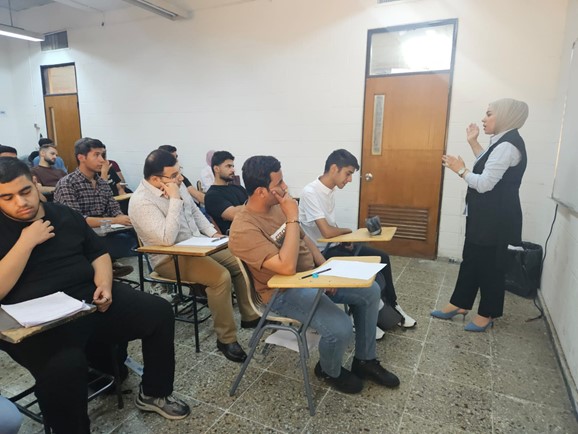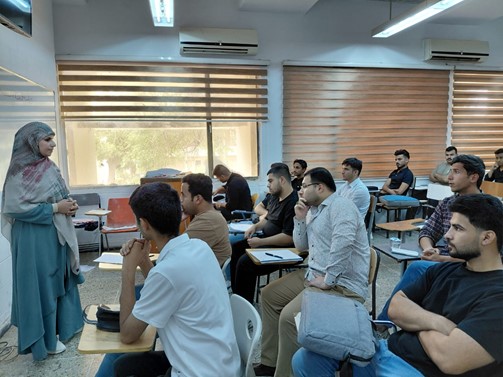Electronic Addiction
As part of the series of guidance and counseling activities organized by the Department of Mechanical Engineering for the academic year 2024–2025, and under the supervision of the Head of Department and in cooperation with the Continuing Education Unit, a lecture entitled “Electronic Addiction” was held on Wednesday, May 14, 2025, in Room M6. The lecture was delivered by Assistant Lecturer Zainab Adnan and Assistant Lecturer Aliaa Hussein, and it was directed to first-year students.
The session was opened by Ms. Zainab Adnan, who highlighted the importance of addressing the phenomenon of electronic addiction, which has increasingly affected youth and students in negative ways—academically, socially, and health-wise.
Objectives of the Workshop:
- To introduce participants to the concept of electronic addiction and its types (smartphone addiction, online gaming, social media, etc.).
- To shed light on the psychological, social, and health effects of excessive use of technology.
- To raise awareness about prevention methods and ways to reduce electronic addiction across different segments of society.
- To provide alternative strategies that promote healthy and balanced use of technology in daily life.
Workshop Topics:
- The difference between positive and addictive use of technology.
- The role of family and educational institutions in raising awareness.
- The relationship between electronic addiction and depression/anxiety/social isolation.
- Real-life stories and case studies.
Workshop Recommendations:
- Integrate awareness programs into educational curricula regarding safe and responsible technology use.
- Encourage physical, social, and skill-based activities as positive alternatives to prolonged screen time.
- Organize periodic awareness campaigns in schools, universities, and local communities.
- Strengthen the role of media in highlighting the dangers of electronic addiction and presenting practical solutions for prevention.
- Involve psychological and social specialists in cases of severe addiction.
The lecture concluded with an open discussion session, during which attendees expressed their appreciation for the efforts made in addressing this critical issue, emphasizing the importance of continuing such awareness activities for building a more digitally conscious and balanced society.









